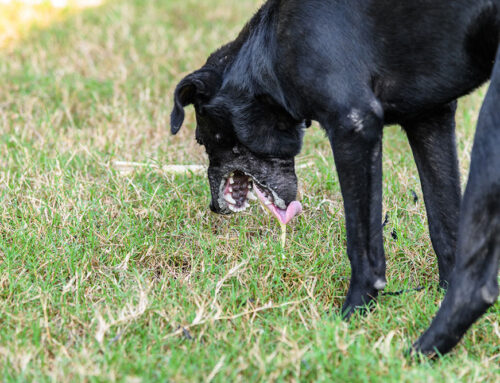Hidden Health Risks for Traveling Pets
A family road trip, a flight across the country, or even a quick visit to a new town can expose pets to unfamiliar parasites and diseases. Kennel cough from a boarding stay, intestinal parasites from a rest stop, or tick-borne illnesses in new regions are just a few of the risks.
When you’re on the road, or when pets return home limping, coughing, or showing sudden changes, it can be hard to know how urgent the problem is. At Peak Pet Urgent Care in Reno, NV, our team provides walk-in urgent care to assess concerns quickly, giving families peace of mind when travel takes an unexpected turn.
What Travel Risks for Pets Should I Consider?
Traveling with your pet brings new experiences but also new health risks. These typically fall into three main categories: infectious diseases, parasites, region-specific concerns, and environmental hazards.
Pets are often exposed to pathogens and conditions they wouldn’t normally encounter at home. On top of that, the stress of travel can weaken their immune systems, making them more vulnerable to illness. By understanding these risks ahead of time, pet owners can take preventive steps, recognize early warning signs, and seek timely veterinary care if needed.
1. Diseases
Kennel cough and respiratory infections represent one of the most frequent travel-related health issues. This highly contagious respiratory condition spreads rapidly in environments where multiple animals gather, such as boarding facilities, dog parks, or rest stops. Symptoms include a persistent dry cough that sounds like honking, retching, or gagging. While vaccination provides protection against several strains, it doesn’t cover all variants, and stress from travel can still leave pets vulnerable.
How We Can Help
The team at Peak Pet Urgent Care frequently sees pets with respiratory symptoms following travel. Early treatment can prevent complications and reduce the duration of illness, making prompt evaluation essential when coughing persists or worsens.
2. Intestinal Parasites and Tick-Borne Illnesses
Intestinal parasites pose another significant concern for traveling pets. Dogs and cats can contract parasites from contaminated water sources, infected soil, or contact with other animals’ waste. Common culprits include roundworms, hookworms, and giardia. Symptoms may not appear immediately but can include diarrhea, vomiting, weight loss, or changes in appetite.
Tick-borne illnesses vary significantly by geographic region, making travel particularly risky for pets visiting unfamiliar areas. Lyme disease, Rocky Mountain spotted fever, and ehrlichiosis are transmitted through tick bites and can cause serious health complications if left untreated. Symptoms often develop weeks after exposure and may include fever, lethargy, joint pain, or loss of appetite.
How We Can Help
Following preventive guidelines helps reduce these risks, but even careful pet owners can find their animals affected. Regular fecal examinations before and after travel can catch infections early, when treatment is most effective.
3. Region-Specific Concerns
Leptospirosis presents a growing concern for traveling pets, particularly those visiting areas with standing water or wildlife populations. This bacterial infection spreads through contaminated water sources and can affect both pets and humans. Understanding leptospirosis risks helps pet owners recognize when their animals may have been exposed.
Early symptoms resemble many other illnesses, including fever, vomiting, and decreased appetite. However, leptospirosis can progress rapidly to kidney or liver failure, making prompt veterinary attention crucial for any pet showing these signs after travel.
Heartworm disease prevalence varies dramatically across different regions of the United States. The heartworm prevalence map shows that pets traveling from low-risk areas to high-risk regions face increased exposure to infected mosquitoes. While heartworm prevention is essential year-round, pets visiting endemic areas may benefit from additional protective measures.
Environmental Hazards
Travel often brings pets into contact with environmental dangers they wouldn’t encounter at home. Blue-Green Algae blooms in lakes, ponds, and slow-moving rivers can be deadly to pets within hours of exposure. These toxic algae produce poisons that cause rapid onset of symptoms including vomiting, diarrhea, difficulty breathing, and seizures.
Pet owners should learn about safety precautions before visiting areas with natural water sources. Even small amounts of contaminated water can be fatal, making prevention the only effective strategy.
Wildlife encounters present unique challenges for traveling pets. Unfamiliar animals may carry diseases or parasites not common in the pet’s home region. Meeting a skunk behind a rest stop trash can or surprising a raccoon on a hiking trail can result in bite wounds and rabies exposure. Knowing what to do if you encounter a wild animal can prevent dangerous situations and reduce disease transmission risks.
Preparing for Safe Travel with Your Pet
The goal is to ensure your pet dog or pet cat doesn’t need a trip to urgent care after a vacation. To help achieve that goal, consider taking the following pre-trip preventative measures:
1. Pre-Trip Pet Health Checks and Vaccinations
A pre-travel veterinary visit serves as the foundation of safe pet travel. Your veterinarian can assess your pet’s current health status, update necessary vaccinations, and provide specific recommendations based on your destination. Some locations require health certificates or specific vaccinations, particularly for international travel.
Understanding travel regulations for pets helps avoid complications and ensures compliance with local requirements. These regulations exist to prevent disease spread and protect both traveling pets and local animal populations.
2. Proactive Pre-Trip Pet Care
Heat safety and hydration become critical concerns during travel, especially in warmer climates or during summer months. Pets can develop heat-related illnesses quickly, particularly in vehicles or unfamiliar environments where they may be more stressed.
Parasite prevention should begin before your trip. Effective flea, tick, and heartworm preventatives provide the first line of defense against travel-related parasites. Your veterinarian may recommend adjusting prevention protocols based on your destination’s specific risks.
3. Pet Travel Essentials
A well-prepared pet travel kit includes medications, a first aid kit, health records, familiar items for comfort, and emergency contact information. If your pet has anxiety, talk to your vet about ways to help prevent stress-related health issues.

Recognizing and Responding to Pet Health Issues
Travel can take a toll on pets, and not all symptoms appear right away. Understanding what to watch for and when to seek care helps protect your pet’s health once you’re home.
Identifying Travel-Related Pet Illness Symptoms
Post-travel health issues may develop immediately or weeks after returning home. Common signs include changes in:
- Appetite
- Energy level
- Bathroom habits
- Behavior
Also look for:
- Respiratory symptoms like coughing or difficulty breathing
- Gastrointestinal upset
- Limping
- Skin irritation
Learning basic first aid techniques helps pet owners provide initial care while seeking professional help. However, many travel-related illnesses require veterinary diagnosis and treatment.
When to Seek Urgent Care for Travel-Related Pet Health Issues
Determining when symptoms require immediate attention can be challenging for pet owners. Difficulty breathing, persistent vomiting or diarrhea, extreme lethargy, or signs of pain indicate the need for urgent evaluation. The services offered at Peak Pet Urgent Care include diagnostic testing and treatment for travel-related health concerns.
True emergencies require immediate veterinary attention. Knowing how to respond quickly and effectively can save your pet’s life. Preventing pet emergencies through proper preparation and awareness reduces the likelihood of crisis situations during travel.
Safeguarding Your Pet’s Wellness on Every Journey
Travel-related health risks are real, but proper preparation and prompt attention to symptoms can keep your pet safe and healthy. Whether your pet returns home with a persistent cough, changes in appetite, unusual lethargy, or signs of discomfort, these symptoms deserve professional evaluation.
Peak Pet Urgent Care provides comprehensive diagnostic services and treatment for travel-related health concerns, with walk-in availability when you need answers quickly. If your pet shows any concerning symptoms after travel, don’t wait to seek care. Contact Peak Pet Urgent Care at (775) 484-8400 to discuss your pet’s symptoms and determine the best course of action.
Our experienced team is ready to provide the expert care your pet needs to recover fully from any travel-related health issues.







Leave A Comment